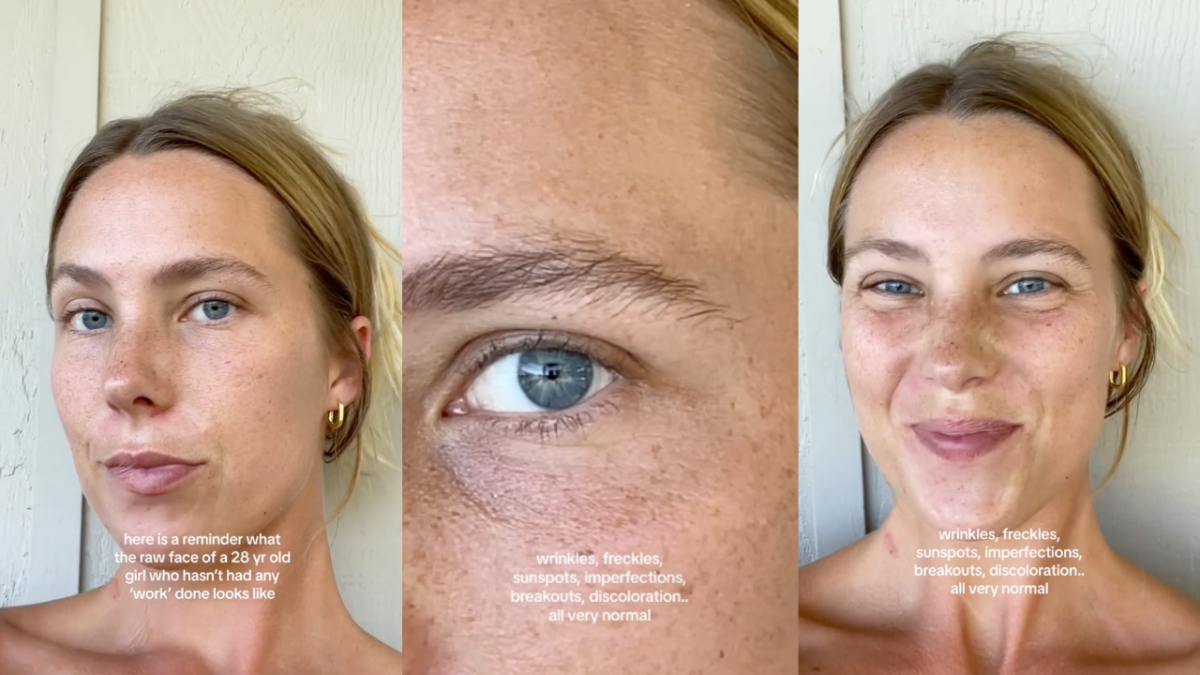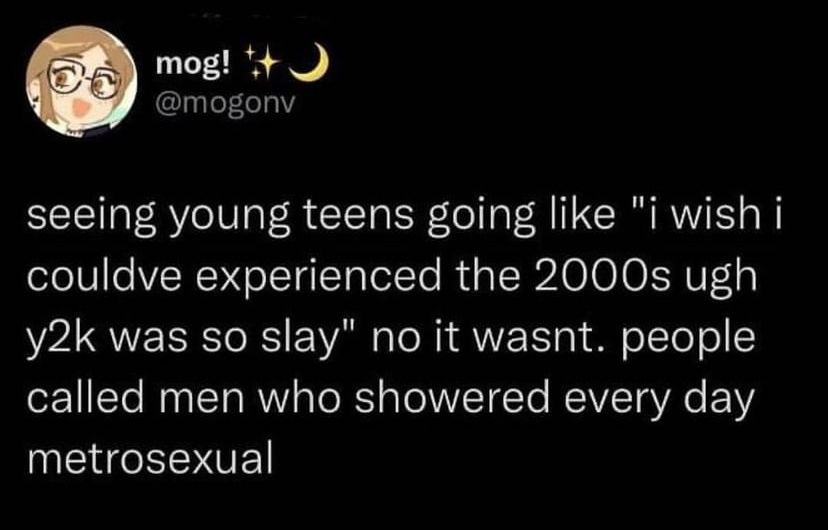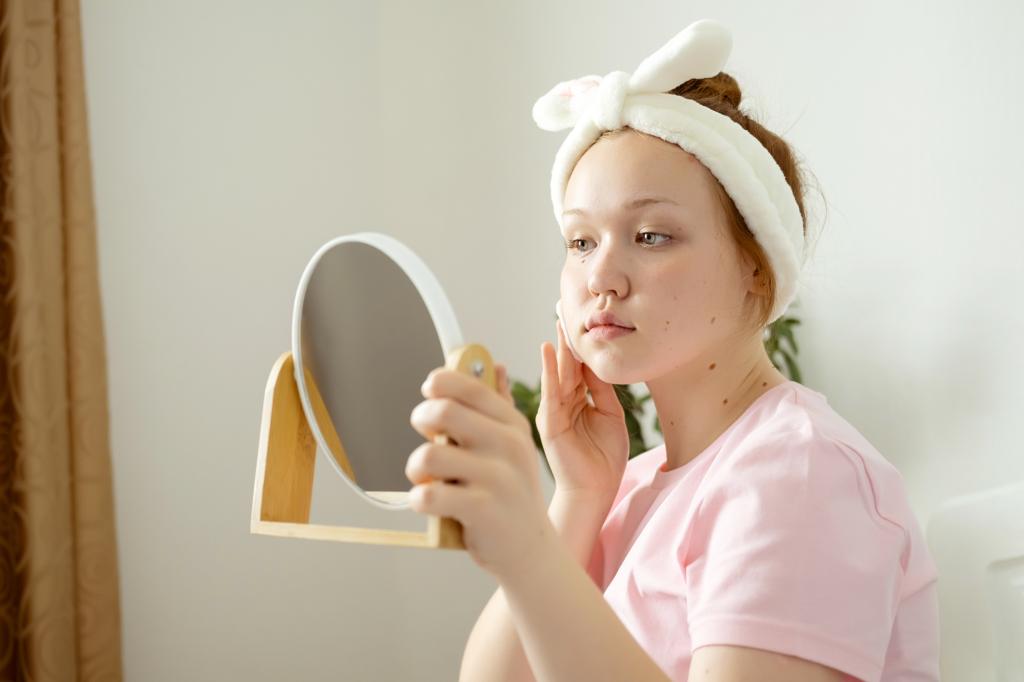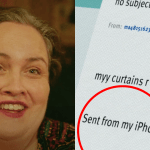
Retinol this, hyaluronic acid that. What once just consisted of — at least, for teenage me — cleanser, moisturiser, sheet masks and toothpaste as pimple cream, has now become a much more elaborate skincare routine. And these routines have become an integral part not just of young women’s lives, but of their psyches.
Every week, there’s a new trend on how to get glass skin (try slugging!) or minimise your disgustingly large, not-acceptable-in-modern-society pores (use a frozen beauty blender!) or hydrate your age spots away (squalane!). But this high turnover of micro-trends, and the vicious way we’ve come to talk about things that should be normal (like wrinkles and blemishes), has got me thinking: is obsessive skincare the new generation’s version of 2000s diet fads and weight loss tips?
Let me explain.
Recently there was a moral panic after videos of 10-year-old girls terrorising Sephora and Mecca stores went viral on TikTok. These stores have become a playground for girls aged as young as nine who are concerned about getting wrinkles (wrinkles! on a baby!), or sun damage, or uneven pigmentation, or whatever skin condition is being talked about that week. And so these kids are begging their parents to spend hundreds of dollars on luxury skincare designed for adult women — often with active ingredients like AHA and retinol — despite how harmful they are for literal children’s skin barriers.
Around the same time as these Sephora kids made headlines, another video also went viral: a TikToker named Courtney Ball shared a video of her “raw” face to show young people what “normal” skin of a 28-year-old woman can look like.
“Wrinkles, freckles, sunspots, imperfections, breakouts, discolouration… all very normal,” she captioned the video.
If you think this is uncontroversial content, you’d be wrong.
The video, which has more than 8 million views, was bombarded with cruel comments by predominantly teenage girls (and also some older women) who shamed Courtney for having what they believed to be totally preventable skin imperfections — and the fact that she didn’t prevent them seemed to be a moral failing on her part.
“Lmao. The sun is eating you up,” one person commented.
“Stay out of the sun jeez woman,” wrote another.
Other unkind comments told the woman she looked way older than her age, that she should try botox to “fix” her smile lines and wrinkles, and that she should take care of herself — because to them, the state of her skin appeared to be a form of self-hate. Does any of this sound familiar to you?
To me, the comments on Courtney’s TikTok are startlingly reminiscent of the nasty body-shaming I witnessed in my own teen years, when the obsession at the time was skinniness and weight loss.
Instead of skincare trends, we had diet and food trends. Instead of skincare smoothies, we had various weight loss teas. Instead of saving up for botox, teen girls from my time saved up for liposuction. But the nasty comments remain the same.
Fancy skincare has not only become ubiquitous with trendiness, style and luxury (have you tried this $80 viral serum? What about this $100 night cream?), but also with self-love and self-care, too, thanks to the beauty industry and its clever marketing.
Now, thanks to marketing, not having an elaborate skincare routine isn’t just considered immature or a daggy or uncool— it’s a symptom of not loving yourself.

Being skinny was (and still is) ubiquitous with being luxe, classy, and yes — loving yourself. When people are referring to a woman who has gained weight, they say she has “let herself go” because this undesirable trait (weight gain) is considered incompatible with self-love and respect. Which, right now, is also something we’re seeing with skincare.
When I asked integrated facialist April Brodie about this comparison, she said she agrees “100 per cent” that TikTok’s skincare and anti-ageing obsession embodies the same toxicity of diet culture.
Brodie compared celebrities of the 2010s (hello Kim Kardashian) and their insistence that they had remained skinny through the use of certain products they were selling — instead of the professional trainers, dieticians, chefs and body modifications their wealth gives them access to — to influencers now with skincare trends.
“They’ll be telling you that they do all these crazy routines [to keep their skin clear] but a lot of people are on accutane,” she said.

When I asked Isabella Loneragan, skin expert and the face behind Ragan Skincare, about my observations, she told me I’d “hit the nail on the head.”
“There really is [a sense of fear of blemishes] and I think that’s social media’s fault,” she said, noting she had seen as much in her own young clients.
“Girls come in and I treat their acne… I take a photo of them when they arrive and, say, three months later. Their acne has disappeared but their skin is still healing so there’s there’s pink scars, there’s brown marks. They’re really miserable because they don’t realise that skin just doesn’t just heal instantly.”
So, now that we know this skincare obsession is a problem, how do we fix it?
Brodie said the key was education — we need to be open, we need to be honest about what skin looks like, and we need to teach young girls what is realistic and what is just marketing on Instagram.
However, Loneragan said it isn’t that easy — for starters, the beauty industry’s standards are embedded pretty deep into our souls.
“[We have] an industry that is rubbing its hands together with glee watching all these dollars come in from these teenage girls that think they need it,” she said.
She suggested better regulations around skincare and advertising, especially regarding children and teens, could be a step in the right direction — but also there’s so many layers to this (TikTok, Instagram, influencers, increasingly sneaky marketing).

It might feel like a bit of a David vs Goliath situation, but I like to think we can tackle this with compassion and wisdom.
I mean, we’ve been fighting the good fight against diet culture and skinny-obessions for decades, and we’ve come a long way. Now, when a Kardashian promotes a diet or weight tea, we call it out. We’re making waves in the body positivity space — I mean, the world was graced with the first plus-size model in the Miss Universe pageant last year!
Just recently, when a toxic body-shaming trend became popular on TikTok, women banded together to protect Gen Z teens — and it resulted in the hashtag being taken down and better support services for users.
Every day, the world is trying to sell us a new insecurity, but we’re getting very good at seeing through it when it does. And there’s no reason for that to stop now.



